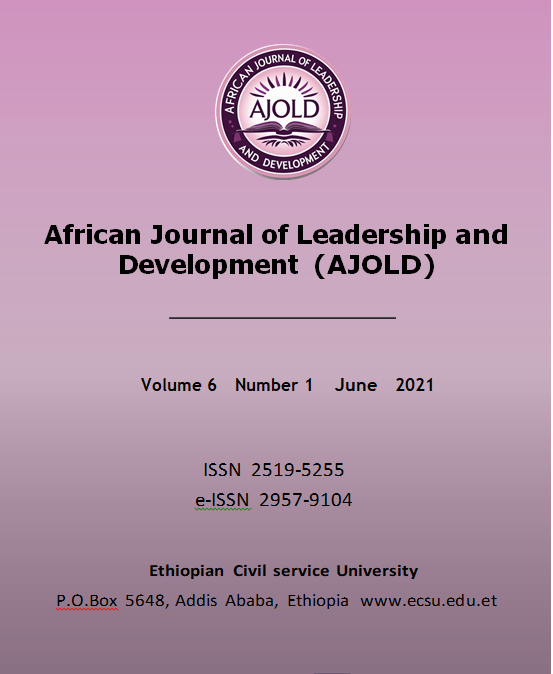Practices and Challenges of Job Evaluation and Grading (JEG) in the Ethiopian Public Sector: The Case of Selected Grad I Town Administrations in Oromia Regional State
DOI:
https://doi.org/10.63990/2021ajoldvol6iss1pp69-85Keywords:
Job evaluation and grading, Oromia region, Grade one citiesAbstract
The purpose of this research was to assess the practices and challenges of job evaluation and grading in grade one city administrations of Oromia Regional State. Descriptive research design and mixed research approach were used. Both probability and non-probability techniques were used. Random sampling technique was used to select ten cities from the 19 grade one city administrations in the region. Hence, using proportional random sampling technique, 1000 civil servants were taken for this study. Questionnaire, focus group discussions and key informant interview were the methods used for data collection. Whereas descriptive statistics has been used to analyse quantitative data, thematization and narration method were utilized for qualitative data. The findings revealed that while the level of transparency during employees’ placement was moderate, the level of accountability and employees’ participation was low. Moreover, some city administrations not only compromised merit principles but they also failed to get committed to apply the principle of placing the right person at the right position. Employees not only lacked confidence with the employees’ placement committee but they also were desperate about their future career development Other challenges reported included payment related problems, interferences from the top, unfair composition of employee placement committee as well as criteria used. The researchers concluded that there were both success and failure story recorded during the implementation of the program. The study recommended that before any reform implementation the concerned body must improve knowledge and awareness level of its stakeholders. It was also recommended that public sectors and other stakeholders should be committed and responsible to manage any implementation of reform initiatives without politically motivated behaviour.
Downloads
Published
How to Cite
Issue
Section
License
This work is licensed under a Creative Commons Attribution-NonCommercial 4.0 International License






